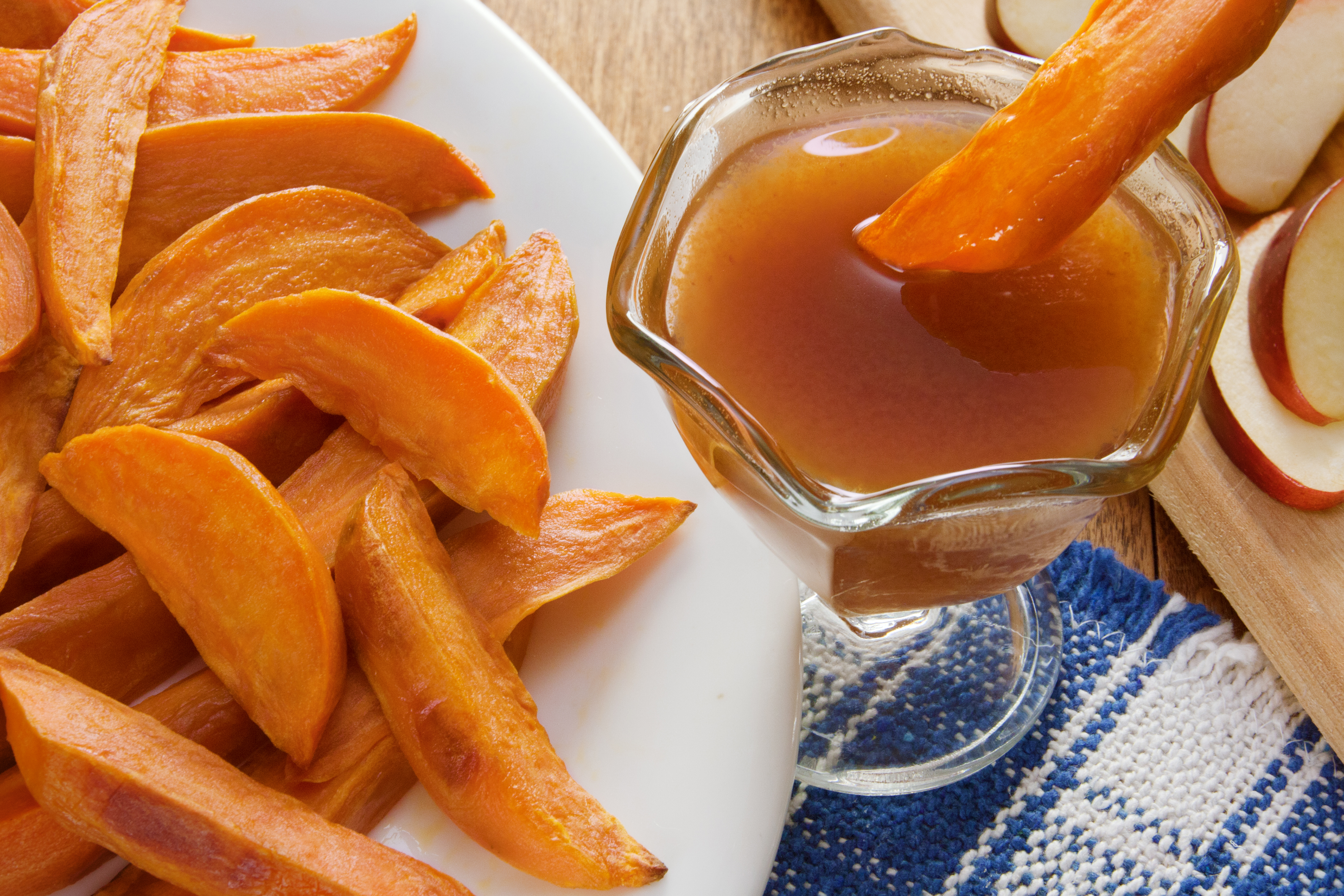February is American Heart Month, and in the past I’ve written about sodium and how decreasing one’s salt and sodium intake can bring heart-y benefits for many people, including lower blood pressure. High blood pressure is a risk factor for stroke and heart disease, so doing what we can to keep our blood pressure in a healthy range is a smart strategy for heart-healthy living. There’s more to dietary management of blood pressure than keeping a lid on sodium intake, however. Getting enough potassium is equally important. So, it’s time for some potassium love…

What do we need potassium for?
Potassium is a mineral that helps us maintain our body’s fluid balance (which impacts blood pressure), helps with muscle contraction (including our heart muscle!), and is important for nerve function. Inadequate levels of potassium in the body can cause muscle weakness, heart palpitations, increased blood pressure, fatigue and fainting, among other things. Low intakes of potassium are mainly due to low intakes are fruits, vegetables and dairy products, according to the U.S. Dietary Guidelines. However, inadequate dietary potassium doesn’t typically cause severe potassium deficiencies. Nevertheless, given that potassium helps counteract the impact of sodium on blood pressure (and most of us get plenty more sodium than our bodies need), it makes sense to give your potassium intake a little thought—especially if you already have high blood pressure or heart health concerns.
Pack in the potassium.
Sometimes it seems as though nutrition advice relies heavily on “foods to avoid” (sigh). Not so with potassium, as many of us don’t get the daily 4,700mg recommended by the Institute of Medicine (breastfeeding women need more—5,100mg/day). In fact, the 2015-2020 U.S. Dietary Guidelines list it as a nutrient of public health concern due to its importance and Americans’ underconsumption of potassium. Here’s a helpful list of foods ranked according to their potassium contribution. You can see that at the top of this list is your regular old white potato! Potatoes are a great source of potassium (eat the skin, too), and who doesn’t like a good baked potato on a cold February night? If you prefer sweet potatoes, they are good, too; take your pick. And while you’re at it, consider bumping up your fruit and vegetable intake across the board in order to pump up your potassium intake. Shoot for 5+ servings of produce per day. Oh, and keep an eye on food labels: starting this summer food manufacturers will be required to list the potassium content of foods on the Nutrition Facts label.
Chat with your doc.
If you have high blood pressure or heart disease, chances are you’re already seeing your physician regularly. Before you make any changes to your diet, consult with your doctor and get the go-ahead. And, if you have kidney disease or are taking blood pressure-lowering medications, it’s essential that you consult your doctor about dietary management of your condition. A cautionary note: potassium supplements are only recommended in certain (usually severe) cases of deficiency and under a physician’s guidance; taking them can cause the opposite problem—too much potassium in your body, which is also dangerous.